After the beating they took over the channel the allies dared not return back for some more. This allowed Hans and the rest of the squadron to relax for the rest of the day.
Meanwhile the ground crews were buying repairing the damaged aircraft. The pilots spend the rest of the afternoon playing cards or making up for some much-missed sleep.
That evening all pilots went to bed, knowing that they had survived another day. But around midnight some sirens woke them all up. Hans ran outside to the nearest shelter, only to stumble on the rest of the squadron gazing at the nightly sky.
“British – probably heading for the Ruhr”
Hans followed their eyes up into the sky. There was nothing to see, but he could hear the low rumble of aircraft engines. Tracer fire lit up the sky in the east
“Guys, get to bed, they aren’t coming for us”.
The commander convinced them to go to bed again. But Hans did not feel at ease. He had experienced night raids in Berlin and did not like the flimsy protection the wooden barracks offered.
The next morning a young soldier woke him up. After breakfast the pilots did what they usually did. Wait near their aircraft until the allies attacked again. They did not have to wait long. Soon the message arrived that a group of British B-25 bombers were trying to launch a day-raid near the coast. All pilots jumped into their aircraft and headed for the bombers. The Brits would learn the hard way that the European skies belonged to the Germans.
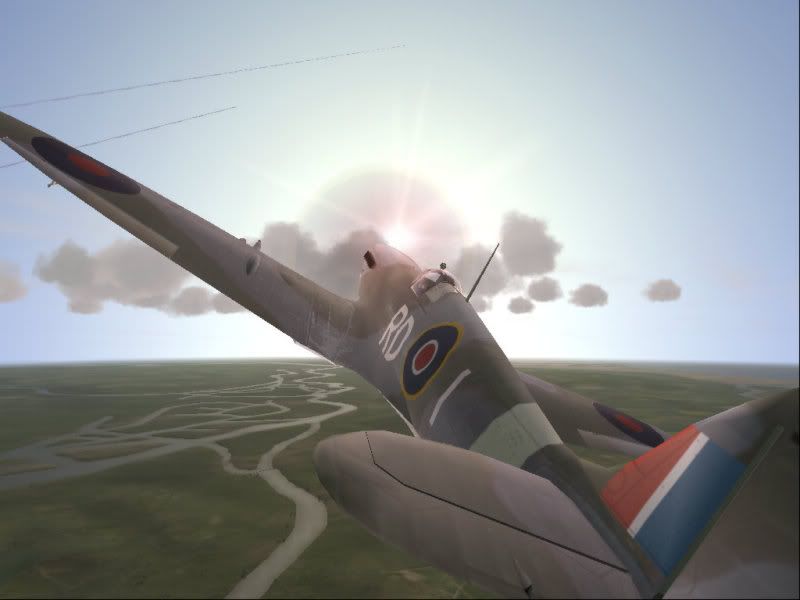
Soon they stumbled on the leading escorts of the bomber formation. But the commander had led his squadron into a favorable position: high in the sun.
The spitfires were not expecting the German so soon and were caught completely off-guard when the Focke-wulfs dove like wolves among them. Hans fired a couple of rounds, pushed his aircraft in a slip, before giving a burst to a single spitfire.
The shells tore through the right wing, severing it from the rest of the aircraft. The Spitfire tumbled to the ground.
Looking around him, Hans noticed burning and falling Spitfires everywhere. Suddenly the German pilots realized that they had annihilated the entire escort. The bombers would be sitting ducks!
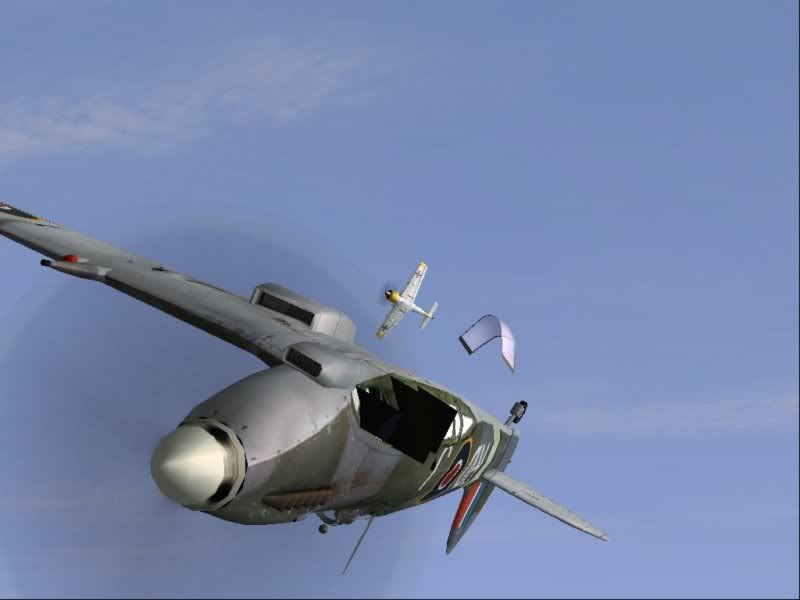
They took there time. Like sharks they circled around the bomber formation. The British pilots who just watched their escorts getting slaughtered, pulled their aircraft closer to each-other. They could turn and head home, but these young men were too stubborn and too proud to chicken out in the face of the enemy.
The Focke-wulfs flew alongside, but out of range of the gunners, like they were measuring up the bomber crews. For a moment nobody dared making the first move.
Then the first Focke-Wulf dove down into the formation. All bombers fired. In a hail of fire the fighter dove through the formation. It fired blindly, not to hit a specific bomber, but to spread them apart. But the bombers kept in formation.
A second and a third Focke-Wulf moved in. This time they aimed intentionally at a bomber. The bomber was at the outer edge of the formation and much more vulnerable to attacks. Several shells hit the bomber, but it still kept flying. Then a fourth Focke-Wulf dove onto the helpless bomber. This one succeeded where the others failed. With a bright flash, the bomber exploded into a cloud of metal and flesh.
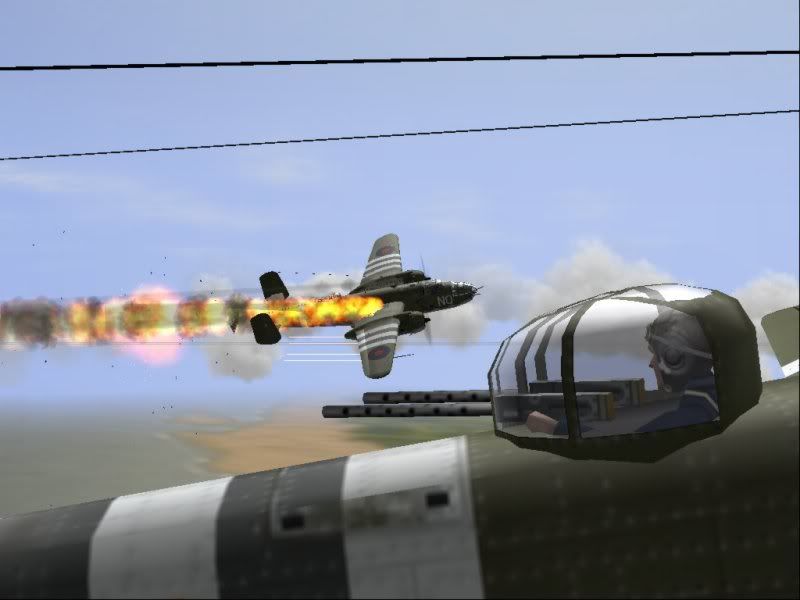
That was the sign for the rest of the Focke-Wulfs to attack. Like the others Hans singled out a bomber near the outside of the formation. These were more vulnerable and were not surrounded by the many guns like in the centre of the formation.
Like an eagle he dove down, adjusting his path so that all his shells would hit the bomber behind the cockpit. If he could hit the bomb-bay the bomber would explode like a fire-cracker.
Sparks flew off the wings and engines of the bomber as shells hit it. Trailing smoke the bomber fell out the formation. Hans ignored the descending bomber. There were still many others in the sky so he pulled up and prepared another run on another bomber.
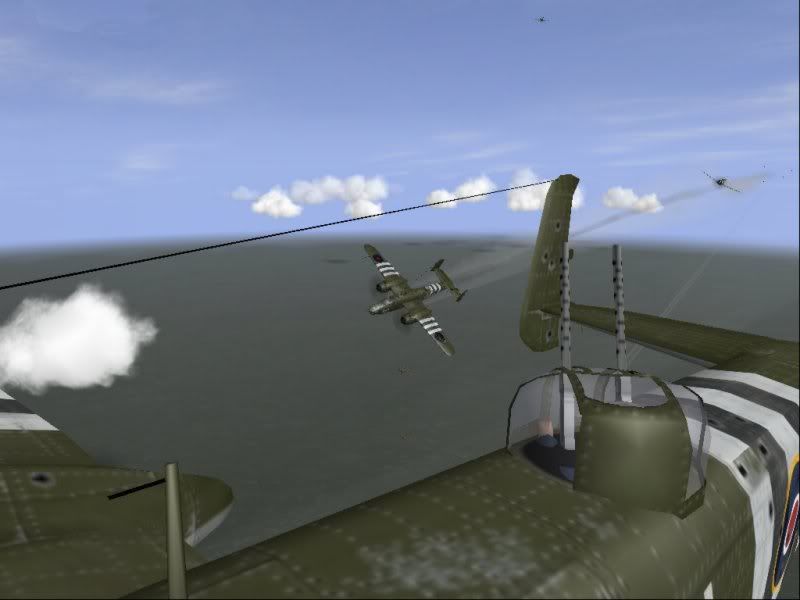
As the Focke-Wulf circled and dove around the bombers, other fighters joined the fray.
Me-109’s from a neighboring airfields climbed towards the bombers. It was not hard to miss them, several bombers were trailing smoke while plumes from crashed aircraft, marked the path of the formation on the ground.
The bomber formation slowly disintegrated. As the bombers broke rank, they could no longer cover each other, allowing the fighters to select their targets at ease.
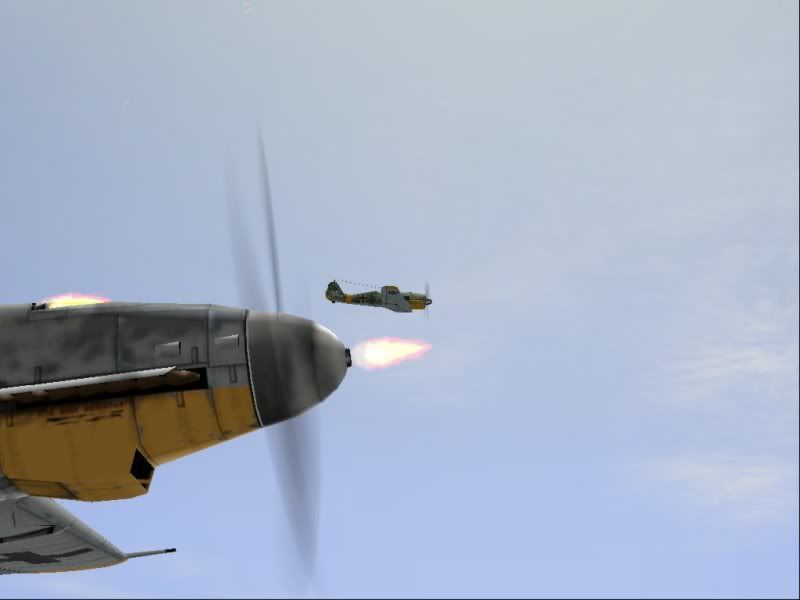
Hans had spotted another bomber. He noticed that the turret gunner no longer fired at the passing fighters. Hans slowly crept up the tail of the bomber. Without warning of the turret gunner, the pilots would not know of the terrible danger on their tail.
Waiting until he was in range with his canons, Hans kept closing in. For a moment the Focke-Wulf buffeted as he caught the propeller wash of the bomber. He was close enough.
Hans pulled the trigger, spraying the fuselage and wings with a rain of shells and bullets. But the bomber kept on flying. Hans could not believe his eyes.
He even got closer, so that his shells could not miss. Again he fired with all his guns. And again the bomber did not budge. Hans had hoped that the bomber would have caught fire by now, but it just kept on flying.
For the final time Hans pulled the trigger, emptying his guns on the bomber. As his guns silenced, deprived of ammunition, the bomber kept stubbornly flying on. How was this possible? Hans decided to have a closer look.
He pulled cautiously alongside the bomber, you never knew whether a gunner was still alive. The bomber was riddled with holes. From the cockpit two pair of eyes stared at Hans. The pilot and co-pilot were watching their executioner.
Hans looked them in the eyes, wiggled his wings and pulled away. If these guys survived such a barrage of his guns, they had earned the right to fly home again.
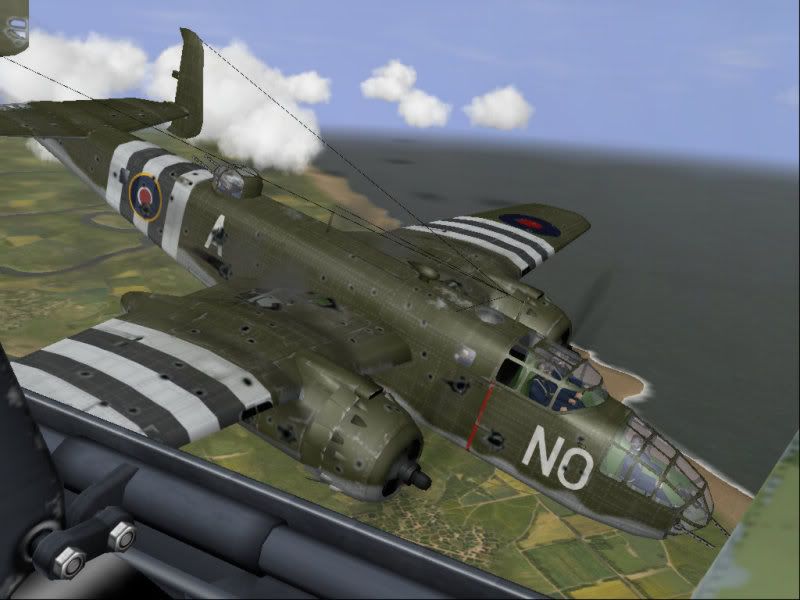
Hans landed safely at the base. There were some holes in his aircraft, but nothing that could not be fixed in a couple of hours.
As he left the aircraft he realized that this war was far from over. The allies kept pushing on, attacking each day regardless of the losses. The allies were either madmen or they had endless resources of men and material.
Either way, they would keep coming, until he was dead or Germany had fallen.
THE END